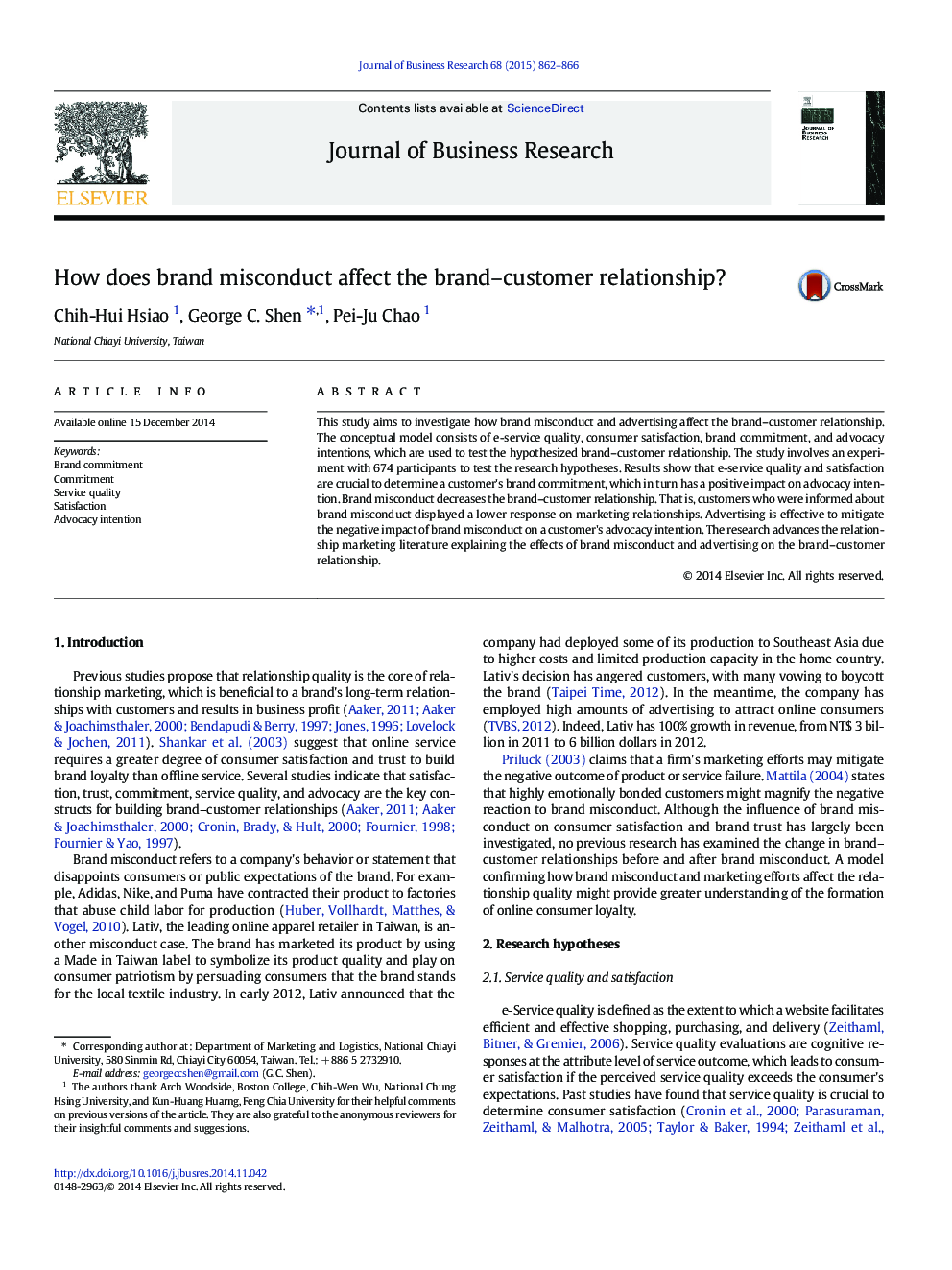| Article ID | Journal | Published Year | Pages | File Type |
|---|---|---|---|---|
| 1017090 | Journal of Business Research | 2015 | 5 Pages |
This study aims to investigate how brand misconduct and advertising affect the brand–customer relationship. The conceptual model consists of e-service quality, consumer satisfaction, brand commitment, and advocacy intentions, which are used to test the hypothesized brand–customer relationship. The study involves an experiment with 674 participants to test the research hypotheses. Results show that e-service quality and satisfaction are crucial to determine a customer's brand commitment, which in turn has a positive impact on advocacy intention. Brand misconduct decreases the brand–customer relationship. That is, customers who were informed about brand misconduct displayed a lower response on marketing relationships. Advertising is effective to mitigate the negative impact of brand misconduct on a customer's advocacy intention. The research advances the relationship marketing literature explaining the effects of brand misconduct and advertising on the brand–customer relationship.
